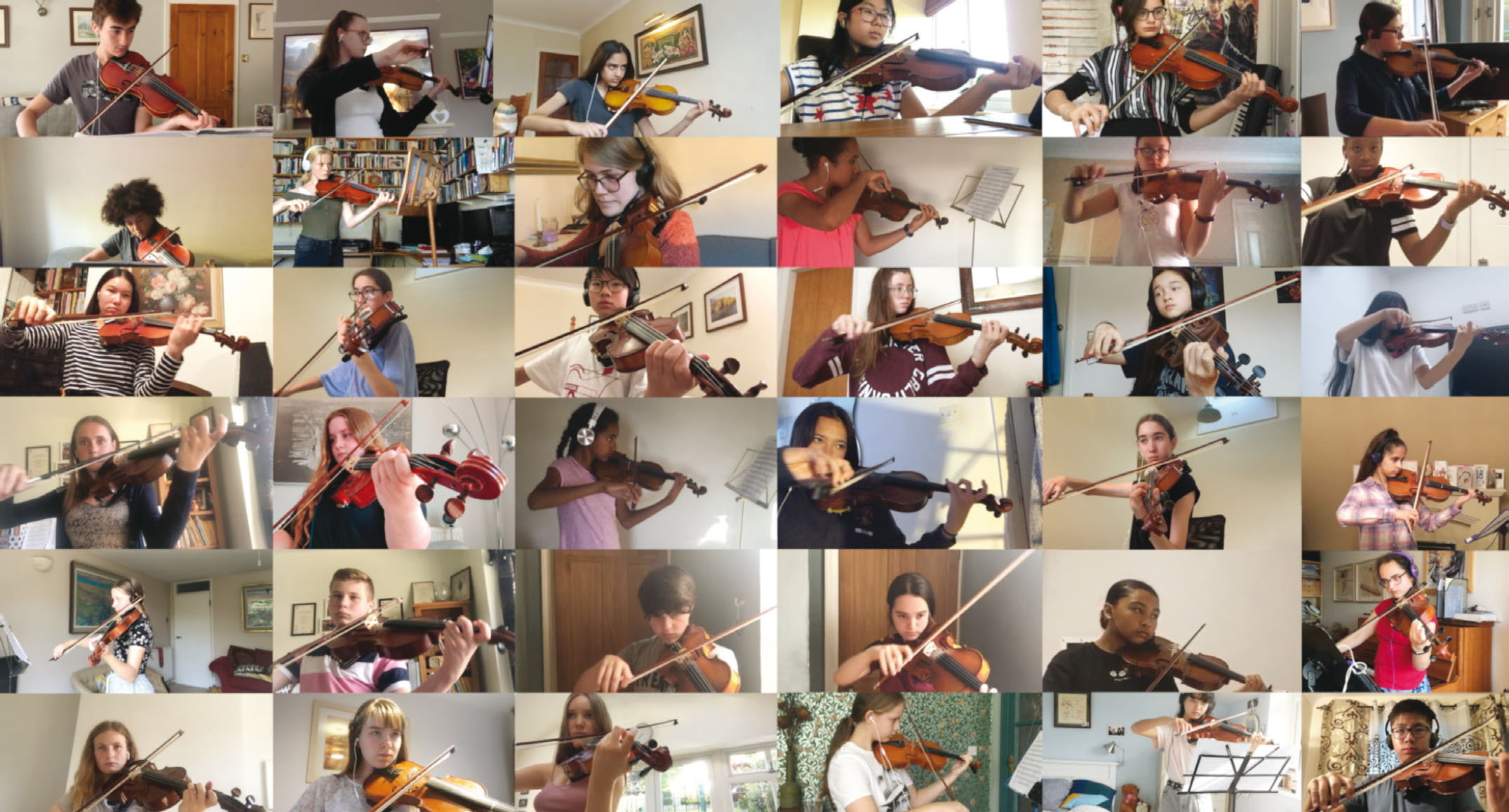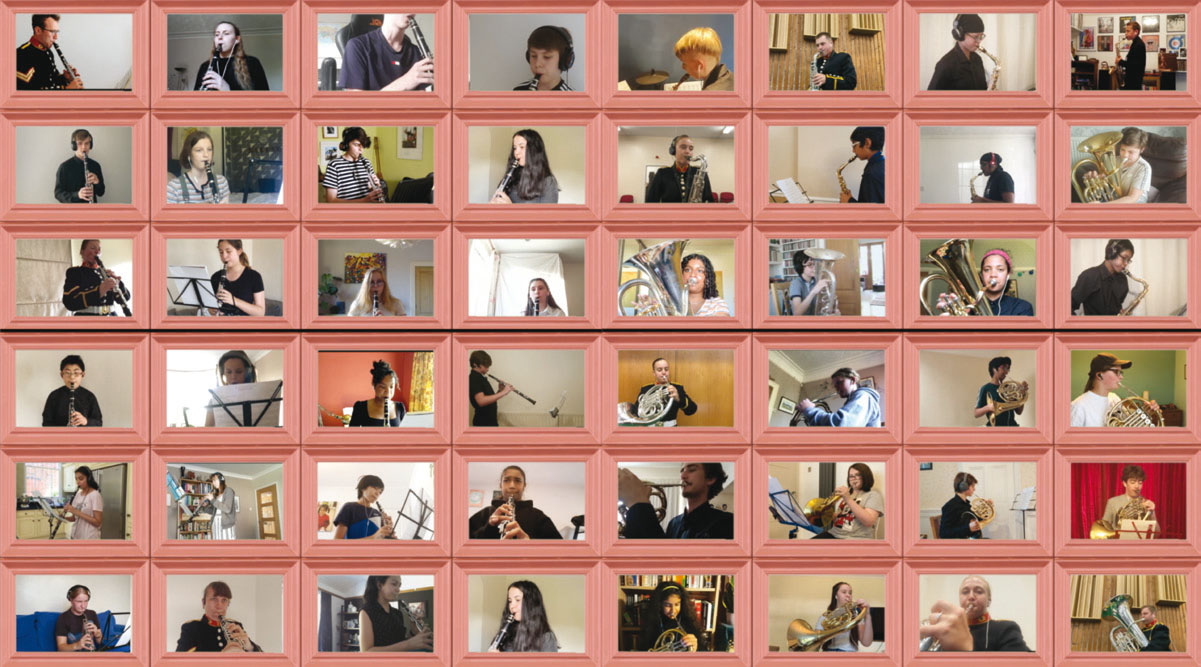
Every year, young musicians from across Birmingham rehearse as part of 30 ensembles and choirs in readiness for the annual Youth Proms: a five-night festival attracting a combined audience of 8,000. After months of preparation, the students arrive full of excitement – and a little trepidation – at Birmingham's Symphony Hall for a day of rehearsals with around 800 other children from the city's schools. Nothing, however, fully prepares them for the thrill of walking out on stage for the evening performance to a packed house of parents, carers, supporters and members of the public.
Of course, we soon realised that the Birmingham Youth Proms, which normally features 3,500 young instrumentalists and singers, aged eight to 18, could not proceed. It was a bitter pill to swallow for everyone, but especially hard for those Year 13 musicians for whom this may have been their last chance to perform on the famous stage, alongside their friends.
With this at the forefront of our minds, the Virtual Youth Prom Festival was born: four nights of concerts weaving together individual performances from ensemble members in their own homes, live-streamed on consecutive evenings. The concerts ran alongside four daytime programmes including masterclasses in woodwind, brass and percussion led by the Royal Marines Band Service, and messages of support from friends including violinist Nicola Benedetti, saxophonist Jess Gillam and Royal Birmingham Conservatoire principal Julian Lloyd-Webber. The four concerts ambitiously included 30 specially created performances streamed live, and each night was opened by a fanfare from the Royal Marines.
Each evening carried a title – Ain't No Mountain High Enough, Don't Stop Me Now, I'm A Believer and Celebration – reflecting the journey the music service community had been on to produce these events. There was also a performance of Somewhere Over The Rainbow – as a tribute to NHS, care and essential workers. Our friend and supporter, BBC presenter Michael Collie – who would usually compere the concerts on stage – offered a few opening words, which gave the concerts a familiar feel. After much anticipation, the new collaborative performances (including six featuring musicians from the Royal Marines performing alongside our young musicians) were premiered across four evenings.

As one of my colleagues said, we moved the Proms from the world-renowned Symphony Hall to the worldwide web. We attracted a wider audience including those who might not normally be able to visit Symphony Hall – grandparents, distant relatives and friends. One enthusiastic viewer wrote: ‘What could have been a disaster has been turned into a wonderful opportunity. It's amazing what all the staff and the wizardry of technology have been able to do. And the students – I'm lost for words. It's not easy to record yourself, all on your own. They've done an incredible job and turned in some tremendous performances.’
Oboist Matthew Glasby, age 13, was one of those performers. Interviewed for BBC Midlands Today, Matthew said: ‘The only thing you can hear before is you playing your part. You never know how good it sounds until the actual Prom. It's a bit of normality when all this [the pandemic] is happening.’
Trombonist Phoebe Wilson, age 18, added: ‘Even though we have missed out on rehearsals, it's still been a lot of work to put together the Virtual Proms with so many students who would otherwise miss out.’
The festival was only one element in a host of initiatives implemented to ensure music tuition could continue. We, like many, found ourselves in a situation where the remote delivery of music lessons was a necessity. Under the leadership of Head of Music Service Stuart Birnie, we communicated with schools about continued delivery; asked parents and carers to give consent to online teaching and quickly trained 200 staff to deliver music teaching remotely, utilising Teams and other video platforms.
What proved so significant was the increased engagement with parents and carers. Most are enthusiastic supporters but normally only see one small part of their child's musical journey. With online teaching – and my colleagues delivered more than 7,000 hours of it in a 12-week period – parents and carers have direct involvement. They hear and see the efforts because their child is exclusively having music lessons in the home. They speak to the music teacher directly and often listen in. Schools also clearly valued the support and recognised the role that music plays – especially in helping children during a period of upheaval.

Students from Birmingham Schools’ Training Wind Orchestra, Concert Band, Concert Orchestra and The Royal Marines perform the James Bond theme Skyfall
And what of the future? We now operate in world that is becoming the new normal. We plan to resume delivery of in-school tuition and reconvene our ensembles when it is safe to do so, but we also anticipate that much of what we have done since March will have to continue and some elements will be expanded. Our response to Covid-19, including online lessons and the Virtual Youth Proms, will go down in music service history, and will complement our live delivery. One thing is for sure however, virtual will never replicate the thrill of walking on the Symphony Hall stage, performing together in front of a live audience.
Virtual Youth Proms in numbers
500 young musicians involved
30 bespoke performances created
4 evening performances
741 hours of viewing
6 performances by Royal Marines Band Service
£6,000+ donated to the charity before, during and after the Proms
Birmingham's Music Service response to lockdown
75 primary schools engaged
53 secondary schools engaged
5 special schools engaged
450 new music training videos produced
7,000 hours of online teaching delivered in 12 weeks
7 weeks’ worth of whole-class primary lessons recorded
20,000 individual lessons delivered
About Services For Education
Services For Education is an education and training charity based in Birmingham. Established in 2012, it is part-funded by the Arts Council, England, and comprises the Music Service and the School Support Service. Services For Education's Music Service, which is one of the largest in the country, works across 384 of the city's schools, teaching music to approximately 38,000 children. It also provides 28,000 musical instruments free of charge. The School Support Service provides expert and professional training and development to teaching and support staff in some 570 schools in Birmingham and the West Midlands.








